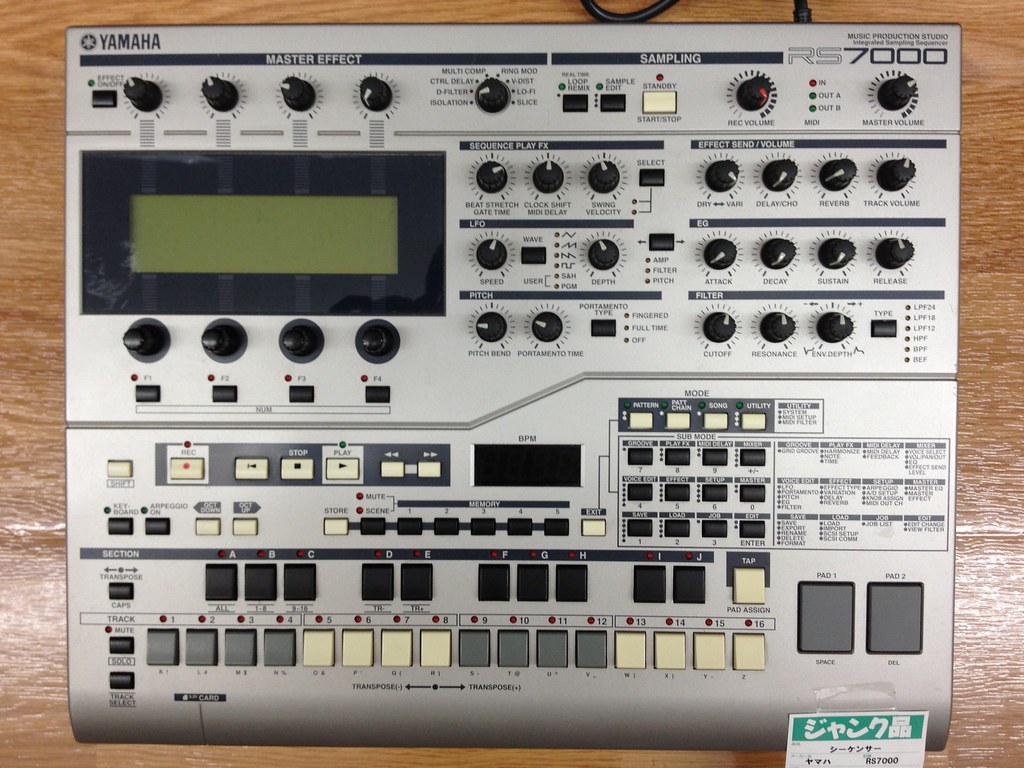Are you interested in mastering the art of electronic music production? Look no further than electronic music production courses. These courses teach you everything you need to know about creating electronic music from scratch, including music theory, software usage, beat creation, and track production. In this guide, we’ll walk you through the benefits of taking electronic music production courses, the different types of courses available, and the top electronic music production schools and courses. Whether you’re a beginner or an experienced producer, electronic music production courses can help you take your music to the next level.
Table of Contents

Benefits of Taking Electronic Music Production Courses
Taking courses in electronic music production offers a structured approach to learning the necessary skills and techniques. These courses are designed to progress in difficulty, starting with the basics and gradually building on those skills. This approach ensures that learners have a solid foundation before moving on to more advanced techniques.
One of the primary benefits of taking electronic music production courses is the access to expert instructors who can offer guidance and feedback. Instructors can provide personalized feedback on individual projects, helping learners to identify areas for improvement and offering tips for how to improve. This feedback can be invaluable in helping learners to progress and improve their skills.
Another benefit of taking electronic music production courses is the access to professional-grade equipment and software. These courses often provide access to industry-standard software and hardware, which can be expensive to purchase individually. This means that learners can gain hands-on experience with the same tools used by professionals in the industry.
In addition to access to equipment and software, electronic music production courses also provide networking opportunities with other aspiring producers. This allows learners to connect with like-minded individuals and potentially collaborate on projects in the future.
Overall, taking courses in electronic music production can help learners to develop the skills and knowledge necessary to create professional-quality electronic music. It provides a structured approach to learning, access to expert instructors and equipment, and networking opportunities within the industry.

Types of Electronic Music Production Courses
When it comes to electronic music production courses, there are several types available catering to various needs, skill levels, and delivery methods. Here are the most common types of electronic music production courses:
Introductory Courses
If you’re new to music production, an introductory course is the perfect place to start. These courses cover the basics of electronic music production, including music theory, sound design, and using software and hardware tools.
Intermediate Courses
Intermediate courses build on the skills acquired in introductory courses and cover more advanced techniques such as arranging and mixing tracks. These courses are ideal for those who already have some experience in music production and want to take their skills to the next level.
Advanced Courses
Advanced courses are designed for experienced producers who want to master advanced techniques and topics such as mastering, advanced sound design, and creating professional-level mixes. These courses require a deep understanding of music theory and advanced music production software.
In-person Courses
In-person courses are typically held at a physical location, such as a school or studio. These courses offer the benefit of direct interaction with instructors and other students, as well as access to professional equipment and software. In-person courses are ideal for those who prefer a structured learning environment and hands-on training.
Online Courses
Online courses are delivered via the internet and offer the benefit of flexibility and convenience. Learners can complete coursework on their own schedule and from their own location. However, they may not offer the same level of direct interaction with instructors and other students. Online courses are ideal for those who prefer a self-paced learning environment and the ability to learn from anywhere in the world.
Regardless of your skill level or learning preference, there is an electronic music production course out there that is right for you. Keep reading to learn more about some of the top electronic music production schools and courses available.

Top Electronic Music Production Schools
If you’re looking to pursue a career in electronic music production, attending a top-rated school can provide you with a comprehensive education and access to industry professionals. Here are some of the most reputable schools that offer courses in electronic music production:
-
Berklee College of Music: Berklee offers a variety of courses in electronic music production, ranging from introductory courses to advanced techniques. Courses are taught by experienced instructors and provide access to professional-grade equipment and software. Students can also take advantage of Berklee’s extensive network of industry professionals and career services.
-
Dubspot: Dubspot is an electronic music production school that offers in-person and online courses. Courses cover a range of topics, including music theory, sound design, and mixing and mastering. Dubspot also offers a variety of workshops and events, where students can network with industry professionals and gain hands-on experience.
-
Point Blank Music School: Point Blank offers courses in electronic music production, DJing, and music business. Courses are taught by experienced instructors and offer access to professional-grade equipment and software. Point Blank also offers career services and supports its graduates in finding employment opportunities in the industry.
-
SAE Institute: SAE Institute offers courses in electronic music production, audio engineering, and sound design. Courses are taught by experienced instructors and provide access to professional-grade equipment and software. SAE Institute also offers career services and supports its graduates in finding employment opportunities in the industry.
Choosing the right school depends on your budget, preferred learning style, and career goals. It’s important to research each school thoroughly and speak with admissions counselors to determine which program is the best fit for you.

Best Electronic Music Production Courses
If you’re looking for the best electronic music production courses, there are several options to choose from. Here are some of the most recommended courses:
Introduction to Electronic Music Production
This course, offered by Berklee College of Music, covers the basics of electronic music production, including music theory, sound design, and using software and hardware tools. The course is designed for beginners and covers topics such as creating melodies, programming beats, and arranging music. Upon completion, learners will have a solid foundation in electronic music production.
The Art of Remixing
This course, offered by Dubspot, covers the art of remixing and provides learners with the skills necessary to create high-quality remixes. The course covers topics such as analyzing the original track, selecting the right sounds and samples, and arranging the remix. The course is suitable for intermediate-level producers who want to take their remixing skills to the next level.
Advanced Music Production Techniques
This course, offered by Point Blank Music School, covers advanced techniques in electronic music production, including advanced sound design and mixing and mastering. The course is designed for experienced producers who want to refine their skills and learn new techniques. The course covers topics such as advanced synthesis, advanced mixing techniques, and mastering.
Electronic Music Production with Ableton Live
This course, offered by SAE Institute, teaches learners how to use Ableton Live to create professional-quality electronic music. The course covers topics such as programming beats, creating basslines, and using effects. The course is suitable for beginners and covers the essentials of electronic music production using Ableton Live. Upon completion, learners will have the skills necessary to produce their own tracks.
All of these courses are taught by industry professionals and offer a hands-on approach to learning. Each course has its own unique curriculum and learning outcomes, so it’s important to choose the course that best fits your needs and skill level.

Online Electronic Music Production Courses
Online courses in electronic music production offer the benefit of flexibility and convenience. Learners can typically complete coursework on their own schedule and from their own location. Online courses are perfect for those who have work or other commitments but still want to learn electronic music production. Here are some of the best online courses:
Music Production in Ableton Live
This course, offered by Udemy, covers the basics of electronic music production using Ableton Live. The course is designed for beginners who want to learn how to create electronic music from scratch. Students will learn the fundamental concepts of music production, including music theory, sound design, mixing and mastering, and arrangement. The course includes 21 hours of on-demand video, 15 articles, and 19 downloadable resources. The course is self-paced, allowing students to complete it on their own schedule.
Electronic Music Production with Logic Pro X
This course, offered by Skillshare, teaches learners how to use Logic Pro X to create professional-quality electronic music. The course is designed for those who are familiar with music production and want to take their skills to the next level. Students will learn advanced techniques in sound design, mixing and mastering, and arrangement, as well as music theory and composition. The course includes 8 hours of on-demand video and 9 downloadable resources. The course is self-paced, allowing students to complete it on their own schedule.
Electronic Music Production with FL Studio
This course, offered by Coursera, covers the basics of electronic music production using FL Studio. The course is designed for beginners who want to learn how to create electronic music from scratch. Students will learn the fundamental concepts of music production, including music theory, sound design, mixing and mastering, and arrangement. The course includes 11 hours of on-demand video and a final project. The course is self-paced, allowing students to complete it on their own schedule.

Music Production Software for Beginners
As a beginner, choosing the right music production software can be overwhelming. With so many options available, it can be difficult to know where to start. To help get you started, we’ve compiled a list of the best music production software for beginners:
GarageBand
GarageBand is a free music production software available for Mac users. It offers a user-friendly interface and a variety of built-in sounds and instruments. GarageBand is great for beginners who want to learn the basics of music production without having to spend money on software.
LMMS
LMMS is a free, open-source music production software available for Windows and Linux users. It offers a variety of built-in sounds and instruments and a user-friendly interface. LMMS is a great option for beginners who want to experiment with different sounds and effects.
FL Studio (Fruity Loops)
FL Studio is a popular music production software available for Windows users. It offers a user-friendly interface and a variety of built-in sounds and instruments. FL Studio is a great option for beginners who want to create professional-sounding tracks without having to spend a lot of money on software.

Career Opportunities in Electronic Music Production
If you’re interested in pursuing a career in electronic music production, there are many different job opportunities available. Here are some of the most common job titles in this field:
Music Producer
Music producers are responsible for overseeing the entire process of creating and producing music, from songwriting to recording to mixing and mastering. They work closely with artists and other music professionals to ensure that the final product meets the desired vision. Music producers can work in a variety of settings, including recording studios, record labels, and freelance.
Sound Designer
Sound designers create and manipulate sound effects and music to create a specific mood or atmosphere in a film, TV show, or video game. They work closely with directors, producers, and other creative professionals to ensure that the sound design enhances the overall storytelling. Sound designers can work in a variety of settings, including film studios, TV networks, and game development companies.
Composer
Composers create original music for film, TV, video games, and other forms of media. They work closely with directors, producers, and other creative professionals to ensure that the music enhances the overall storytelling. Composers can work in a variety of settings, including film studios, TV networks, and game development companies.
Audio Engineer
Audio engineers operate and maintain equipment used to record and produce music. They work closely with producers, artists, and other music professionals to ensure that the recording and production process runs smoothly. Audio engineers can work in a variety of settings, including recording studios, live music venues, and TV networks.
Salaries for these positions can vary widely depending on experience, location, and other factors. According to the Bureau of Labor Statistics, the median annual wage for music directors and composers was $51,670 in May 2020. Salaries for other positions in electronic music production may vary, depending on the specific job and location.
Tips for Succeeding in Electronic Music Production Courses
To ensure success in electronic music production courses, here are some tips to follow:
1. Practice consistently
To improve your skills, it’s important to practice consistently. Set aside dedicated time each day or week to practice and experiment with new techniques.
2. Manage your time effectively
Effective time management is crucial for success in electronic music production courses. Create a schedule and stick to it to ensure that you complete coursework on time and avoid procrastination.
3. Network with other producers
Networking with other producers can provide valuable feedback and opportunities for collaboration. Join online communities, attend events and workshops, and connect with other producers to share knowledge and experiences.
4. Embrace experimentation
Don’t be afraid to experiment and try new things. Electronic music production is all about pushing boundaries and creating something unique, so embrace creativity and take risks.
5. Focus on your strengths
Electronic music production encompasses a wide range of skills and techniques. Focus on your strengths and interests to develop your own unique sound and style.
By following these tips, you can maximize your learning and get the most out of your electronic music production courses.
Conclusion
In conclusion, taking courses in electronic music production is an excellent way to develop your skills and learn the necessary techniques to create high-quality electronic music. With the help of expert instructors and structured coursework, you can gain a deeper understanding of music theory, music production software, and sound design.
By exploring the different types of courses available, from introductory to advanced and in-person to online, you can find the perfect course to fit your schedule, budget, and learning style. Additionally, using beginner-friendly music production software can help you get started quickly and easily.
Remember, the key to success in electronic music production is practice, patience, and persistence. By dedicating time to improving your skills, networking with other producers, and staying up-to-date with the latest trends and technology, you can achieve your goals and take your music to the next level.
Thank you for reading our guide on electronic music production courses. Be sure to check out our other content for more tips and advice on music production, sound design, and the music industry.
Questions & Answers
Who can take electronic music production courses?
Anyone interested in creating electronic music can take these courses.
What skills will I learn in electronic music production courses?
You will learn music theory, software usage, beat creation, and track production.
How long do electronic music production courses typically last?
Course lengths vary, but they can range from a few weeks to several months.
What if I don’t have access to expensive equipment and software?
Many courses provide access to professional-grade equipment and software.
How can I find the best electronic music production course for me?
Research schools and courses thoroughly and speak with admissions counselors.
What if I’m not interested in pursuing a career in music production?
Electronic music production courses can also be taken for personal enjoyment and hobby.
As an experienced music producer and home recording enthusiast for over a decade, I have a deep understanding of the challenges faced by musicians when it comes to finding the best budget PC for music production. Throughout my career, I have worked with various software and hardware setups, experimenting with different PC configurations to optimize my workflow and achieve professional-quality results. My extensive knowledge in this field has been further enhanced by my academic background in computer science, where I conducted research on the impact of processor speed on audio rendering and the benefits of SSD storage in reducing latency during music production. Additionally, I have closely followed industry trends and consulted with experts in the field to ensure that the recommendations provided in this guide are based on the latest advancements and reliable data. By combining my practical experience, academic insights, and research-backed information, I aim to provide musicians and aspiring producers with a comprehensive guide that will empower them to make informed decisions and elevate their music production endeavors.


